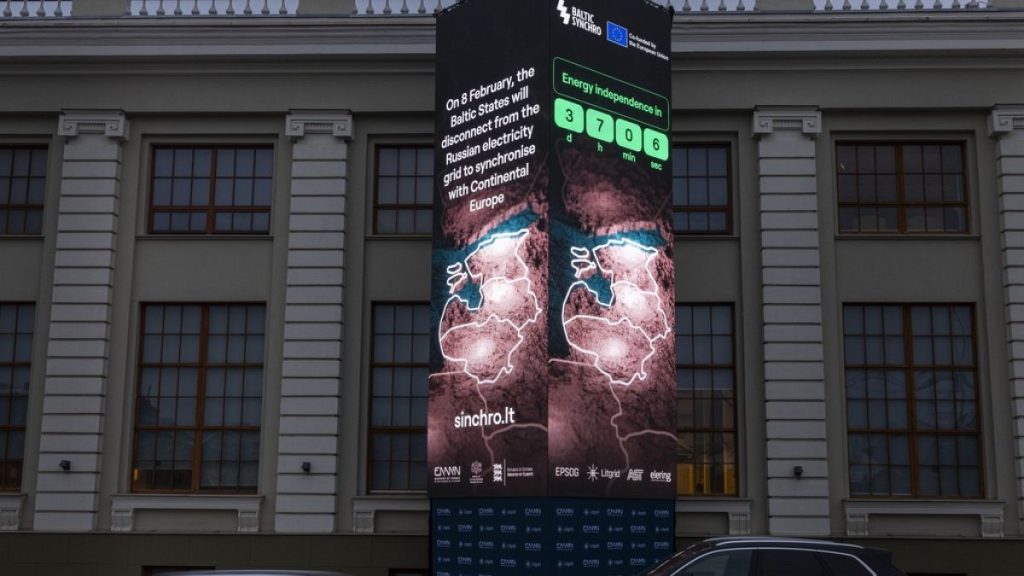Historic Disconnection: Baltic States Sever Ties with Soviet-Era Energy Grid
The Baltic nations of Lithuania, Latvia, and Estonia made history on Saturday morning by disconnecting from the Soviet-era energy grid, marking a significant step toward energy independence and deeper integration with the European Union. This move, decades in the making, symbolizes the region’s continued divergence from its Soviet past and its firm commitment to aligning with Western allies. The disconnection is set to be completed by Sunday, when the Baltic states will officially merge their power systems with the European energy network. This transition is not just a technical adjustment but a geopolitical statement, underscoring the region’s resolve to reduce reliance on Russia and Belarus.
Dismantling Decades of Dependence: The Journey to Energy Independence
The process of disconnecting from the Russian and Belarusian energy systems has been years in the making. The Baltic states, which gained independence from the Soviet Union nearly three and a half decades ago, had long been working to break free from the remnants of Soviet infrastructure. However, the urgency of this effort intensified following Russia’s invasion of Ukraine in 2014. The conflict strained Moscow’s relations with the European Union and highlighted the vulnerabilities of relying on Russia for critical resources like energy. Lithuanian President Gitanas Nausėda aptly described the disconnection as a "physical separation from the last remaining element of our reliance on the Russian and Belarusian energy system."
The technical aspects of the disconnection were complex and involved the dismantling of 16 power lines that once connected the Baltic states to Russia and Belarus. Over the years, these lines were gradually phased out as a new energy grid was constructed to link the region with the rest of the EU. This included the installation of underwater cables in the Baltic Sea, a testament to the engineering prowess and collaborative spirit of the project. On Saturday, the final transmission lines connecting the Baltic countries to Russia, Belarus, and the Russian exclave of Kaliningrad were switched off, marking the end of an era.
A Symbolic Countdown to a New Era
The occasion was marked with a sense of celebration and anticipation. In downtown Vilnius, a specially constructed 9-meter-tall clock counted down the final seconds of the Baltic states’ electricity ties to Russia. The ceremony, attended by EU chief Ursula von der Leyen and other dignitaries, symbolized the region’s transition into a new era of energy independence and closer alignment with Europe. The clock served as a powerful visual reminder of the historic nature of this moment, as the Baltic nations embraced a future free from the shackles of Soviet-era infrastructure.
For 24 hours following the disconnection, the Baltic Power System operated in an "island operation mode," functioning independently before merging with the Continental European and Nordic grids on Sunday. This merger was made possible through new connections with Finland, Sweden, and Poland, further cementing the region’s integration into the EU’s energy framework. The successful execution of this plan is a remarkable achievement, reflecting the resilience and determination of the Baltic states to charts their own course in the face of geopolitical challenges.
Preparing for the Unknown: A Region on High Alert
Despite the careful planning and coordination, the Baltic nations remain vigilant, bracing for any potential response from their former Soviet partners. The region’s shared 1,633-kilometer border with Russia and Belarus serves as a constant reminder of the geopolitical tensions at play. In July, the three countries officially informed Moscow and Minsk of their disconnection plan, but the advance notice has done little to ease concerns about possible retaliation.
In Estonia, for instance, there has been a surge in the sale of portable generators, as residents prepare for possible disruptions to the power supply. While the likelihood of such disruptions remains uncertain, the precautionary measures underscore the sense of cautious optimism that prevails in the region. The Baltic states are well aware that their decision to sever ties with Russia and Belarus carries risks, but they are equally convinced that the long-term benefits of energy independence and closer ties with the EU far outweigh the potential challenges.
A New Chapter for the Baltic States
The disconnection from the Soviet-era energy grid marks a profound shift in the Baltic states’ relationship with their neighbors and the world. It is a testament to their unwavering commitment to sovereignty, security, and solidarity with the European Union. As the region embarks on this new chapter, it does so with a sense of pride and hope for the future. The transition is not just about energy—it’s about identity, resilience, and the pursuit of a safer, more integrated Europe. The Baltic states’ journey to energy independence serves as a powerful reminder that even in uncertain times, determination and cooperation can pave the way for a brighter tomorrow.












